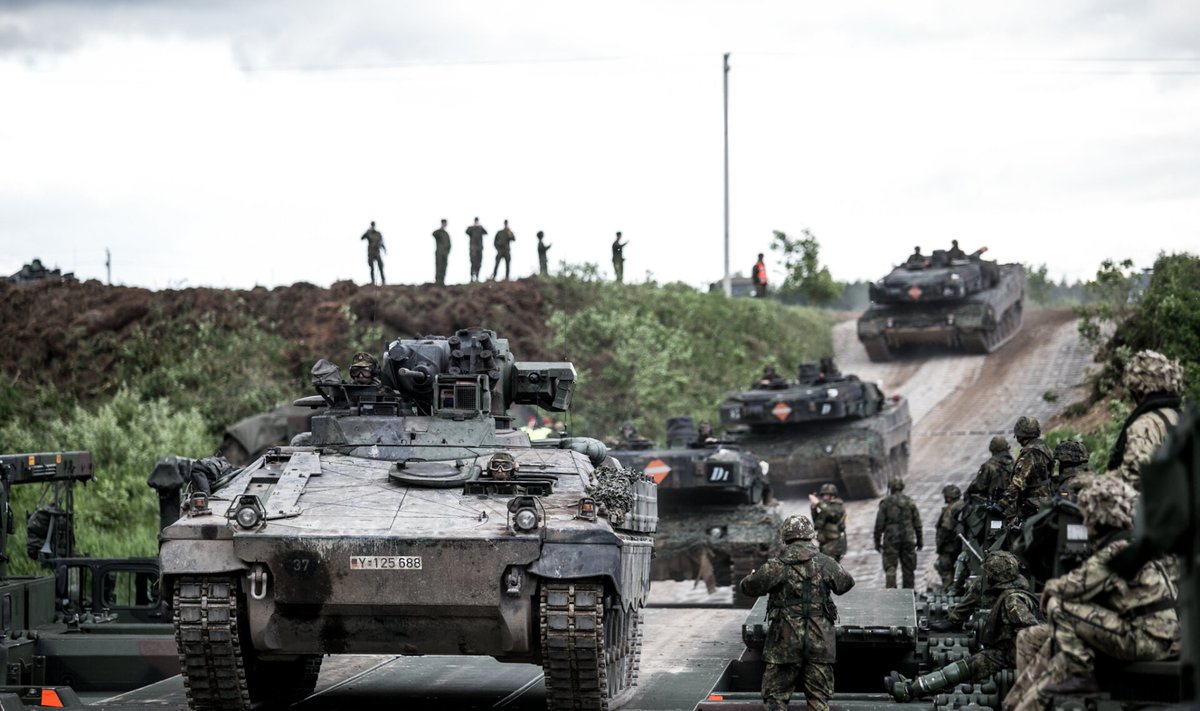At the ceremony, which was held at the Lithuanian Great Hetman Jonusas Radvila Training Regiment in Rukla, he replaced Lieutenant Colonel Daniel Andra of Germany, who commanded the 11th eFP rotation from February.
“Today, we are opening a new chapter in the history of NATO’s Forward Presence Battalion Battle Group in Lithuania and also continuing with the discharge of vital NATO commitments. The Forward Presence Battalion Battle Group is an excellent proof that NATO is functioning: arrives, mobilizes and trains where it is most needed. With the security situation changing, the battalion stationed in Lithuania has grown stronger not only in terms of personnel number but also in terms of capacities sent here [in Lithuania],” the press release quoted Chief of Defense of Lithuania Lt Gen Valdemaras Rupsys as saying.
Maulbecker stressed that the rotation under his command had spent a lot of time preparing for deployment to Rukla and was fully prepared.
“We will deter and, if necessary, defend Lithuania’s territory,” he said.
The most numerous contingent in the 12th rotation Battle Group is provided by framework nation Germany, with other contributing nations being the Netherlands, Belgium, Norway, the Czech Republic and Luxembourg.
Following suit of the previous rotation, the incoming one is enhanced as well as in view of the current security situation – approximately 1,600 allied troops will be serving in Lithuania at Rukla with such military equipment as Leopard tanks, CV90 Marder and Boxer infantry fighting vehicles.
The NATO enhanced Forward Presence Battalion Battle Group Lithuania was established in 2017.
In response to Russia's invasion of Ukraine in late February, NATO confirmed its intention at the Madrid Summit in late June to upgrade the multinational battalions deployed in the Alliance's eastern flank countries since 2017 to the brigade level, if necessary.
The first troops from the German brigade being set up in Lithuania should be deployed by September.
Lithuanian officials have said that the infrastructure necessary for the German brigade's full deployment in the country can be put in place by 2025.
